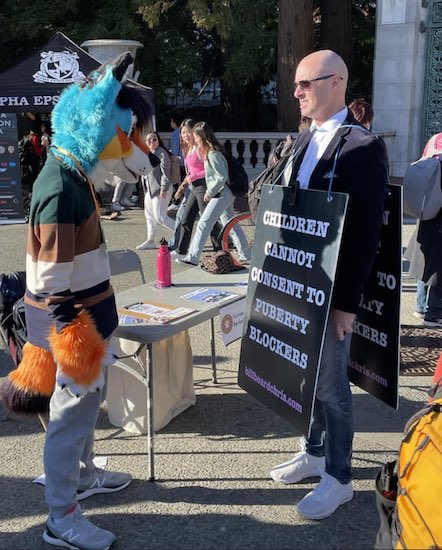Some habits in modern English need to go. Unless you are an American; it is too late to fix your language when you see no problem indefensibly spelling words like "defense". But for the rest of us there is still a chance. I've heard these habits and I've read them often enough, now it is finally time to do something while we still may.
1. Y'all stop it
This is an unnecessary American import. We already have native Ulsterisms like "yous", "you'ns" and "yousn's", earlier English had "ye". We don't need any help from America when we're addressing a multitude in the second person. We are not in the Deep South eating Taco Bell and watching NASCAR, but when you say "y'all" you sound as stale as watching several hundred cars drive around in circles all day.
2. I am going to the bathroom (to drown this phrase in the bath tub)
What, did you forget to shower today? When you wish to relieve yourself say toilet, loo, or even convenience. Even in formal contexts Americans call it a "restroom", when they are too shy to say "toilet". If there is no bath in the room you just sound daft.
3. Misheard metaphors
Toe the line. It is actually tow, a nautical term. "Toe the line" makes no sense. Who ever tiptoes in a line? That's cumbersome and counter-intuitive. The phrase tow the line means stand in a line and pull the rope together, it better conveys the meaning of the metaphor: everyone lined up and attentive to the same task, under the orders of a captain and following them blindly with naval discipline.
Lost the plot, what does that mean? Are we characters in a story going against the author's intention? Perhaps Christians would tell you we are, but I think most uses of this phrase aren't evoking theology. Maybe it is applicable if you are a paperback author and your papers were sogged on the way to work.
4. I've got (a habit that should be forgotten)
In this phrase the 'got' is redundant, unless you wish to make it known you came into possession of an object in the past. If you own something you say "I have" or "I've" if you are in a rush.
To illustrate: You meet a friend and you say "I've got a car", are you telling him you own a car, or are you telling him you recently acquired a car? The former might be useful when arranging transport, the latter news calling for celebration. If you say "I have a car" or "I got a car" it eliminates any ambiguity.
Possession of an item and coming into possession of an item are distinct concepts. We have words for both concepts and they should be kept well apart.

We shouldn't take our grammar after a country that looks like this
5. Can I have (a return of 'may')
There is this habit of saying "Can" when you really mean "may" or "would". May we stop it?
As it has been said before, "can" is ability, "may" is permission. We shouldn't forget "would" and "could" either. Would is to do with will; when you say would you mean "does this action exist within your preferences", while "can" and "could" is to do with ability. Sometimes I want you to do something, other times I am curious whether you have the ability, yet other times I wonder whether you ever carry out the action.
To illustrate: If I ask "Could you climb that building?" am I asking whether you have the ability to climb the building, or am I asking you to go over to the facade and begin clutching the window ledges? These aren't the same question.
Rather when I ask, "would you climb it?" I am asking whether climbing it is something you'd consider. When I mean to request you climb the building, "Will you climb it", "Please climb it", or "You should climb it now" are unambiguous alternatives ranked by urgency.
The other ugly appearance of this habit is when ordering food. When you select an item on a menu and ask "Can I have the seafood special?", we can wager that the waiter is sure you could have that particular dish. What you really want to do is ask the restaurant to prepare it and give it to you, so you should say "may I have the seafood special with extra tartar sauce?"
Other appearances include "Can I come in?". I am sure you are able to come in; you walked to my front door so the hallway isn't going to be a reach for you. And when a shop assistant asks me "Can I help?" I am not sure how to answer. Presumably you can help me if you attended training and have acquired experience with the job.
Instead of that unwieldy phrasing say "may I come in?". It is clear you are asking for permission to enter my dwelling, it sounds politer and accurately conveys what you are asking. While "may I help?" is asking me to permit you to help me. That's kind, and I am flattered, and might say yes if I need the help.
The silliest of all is "Can I ask you a question?". I am sure you can; you just did!
In each case you're making a request to the other party, "can" sounds stupid. I don't know if you can help or not so it doesn't make sense to ask me, but asking me if I would like help is the relevant question. The effect of confusing "can" and "may" is that it makes an enquiry into a demand. It closes the mind to curiosity. We are not better served by more demands and less curiosity; would it be that we would reverse this trend.
6. Maybe I might like it if you would just possibly get to the point
There is a poor breed who cannot finish a sentence without cushioning every word in maybes and mights and likes. Probably an unmistakable malady that's like maybe of the late-millenial generation.
This is a problem; don't inject doubt because you'll doubt yourself. There is no room for maybes. Commit to your words. There is a saying: never leave your actions in the lurch. These bluster words make you hesitant to act and the cumulative doubt makes it harder to break the habit. That's because you've doubted yourself so much before, when you next speak you bring those same doubts to the table again. It is time to break free of the cycle.
You might be under the impression that it is maybe like presenting your humility to everyone around you, but it just makes your seem unreliable and weighed down. Moreover, I have to work twice as hard to pluck the key words from your sentence, so I'm probably not enjoying the conversation very much.
7. Oh, my God forbids
From the television I regularly hear "oh my God" exclaimed for small things. The Lord really, really doesn't care that you've won a prize and a C-list celebrity has come to your door to present it. Really, it isn't even blasphemous. He has heard it so many times that it's just annoying now. Worn.
Find another expression. Try colourful phrases like "Delight, sweet delight!" or "Oh my giddy aunt!". Find one that you identify with. Thereby you won't sound like a copycat whose only habit is watching daytime TV.
8. I am good when I don't presume much
Don't say "I'm good", when you mean that you're well. "Good" is a moral quality, if someone asked you how you are that means your state of well-being so you answer that you're well.
When you answer "I'm good" that is making a moral judgement. You might be righteous or you might not be, but it is a bit presumptuous to say so even if you are.

This is not you
9. Does your mum know?
Another habit that is spoiling our language is saying "mum" and "dad" when you don't mean your own mother or father; the words mum and dad are reserved for intimacy. That means it is only meant for direct maternal or paternal relations and only when you mean to signal that you are close to your family.
I don't understand why but the BBC prints "mum" on its website. They don't know my mother; it comes across as creepy, as if a major broadcaster is coddling up to her. Is this done because one more syllable is too much for its readers? Do its readers struggle with the th (thorn) sound amid mother and father? Will they say "mummy" next?
When you refer to someone else's begetters say "mother and father". You aren't their son or daughter!
10. Stop this train!
I often hear "train station" when the correct term is "railway station". Train station is another Americanism that has seeped into our speech. This one is curious because there are very few railways in America; they prefer the aeroplane. We only see 'train stations' and 'railroads' in American western films or video games.
To elaborate: "Station" means a stop on something else so a "railway station" is a stop on the railway. A train is what travels upon the railway; it makes little sense to say "train station" because that means a stop on the train itself.
We don't even say "bus station", we have bus stops and bus depos (short for depository). Yet this transport crime prevails. I've even seen modern railway stations in Northern Ireland rename their signage to say "Lanyon Place Train Station" when before it was simply "Belfast Central Station".
We can only wince and pray that our sins will be forgiven. This isn't the Old West, but it feels like a stick-up.
11. It's making me antisocial
This is the final one. I might turn antisocial after making it this far in the list.
When you're someone who is socially awkward or shy, you're not "antisocial". You're unsociable. Antisocial means being against the norms and customs of society. Refusing to attend a dinner party will not upend the system.
Rather, antisocial is best understood from ASBOs or Anti Social Behaviour Orders. These orders entitled one to police tracking tags which were only awarded after you'd truly proven your abilities to destroy the property of others or deprive your neighbours of sleep. Don't malign the hard work of those hardworking loafers, don't say you are antisocial before you've earned it.

This is not the work of introverts
Am I A Pedant?
If you've followed the article to now, you might be wondering what is the point? Surely we may infer meaning from context or ask follow up questions to clarify. Isn't imposing rules limiting creativity and levelling over the richness of human expression?
I don't think so. When we're wilfully subjecting our language to Americanisms, we're actually reducing the richness of expression. British, Irish, Canadian or Australian English become less unique. Even Americans who enjoy travel and the mystique of the "Old World" must surely feel a loss when they hear "y'all" or "sure thing" in an English accent.
When we overload possible interpretations of the same word we have dilution of meaning. The effect is more work is needed from the listener to understand the speaker. We become less specific in our speech, and I'd argue that has a sinister effect on your thinking.
Distancing yourself from words and their meanings is distancing yourself from reality, making communication difficult with other inhabitants of the same reality. That's the brink of madness, if I may escalate the point. Grammar is serious business.







